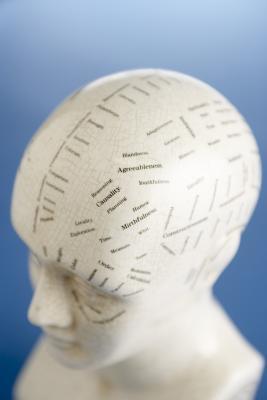Breaking Bad Budgeting Habits
Habits — Bad Ones
A habit is like an ancient decision — you replay the same behavior that originated from a conscious choice you made in the mists of the past. Now you are on autopilot, repeatedly acting out the same behavior with nary a thought. Habits can be bad or good. Bad budgeting habits often involve spending too much, saving too little, ignoring your budget or failing to track your actual spending. You might have discretionary spending categories budgeted out to the penny, yet fall victim to impulse purchases. This is called “being human.” Yet you are not powerless to change bad budgeting habits. The first step is to understand the cues that trigger self-defeating behavior.
Cues That Trigger Habits
Suppose your budget doesn’t provide for $4 coffee drinks every day, yet somehow not a day goes by without a trip to your favorite barista. Ask yourself: do you go about the same time every day, or when you are in a certain mood? Perhaps you feel the need for that expensive cup when you are with certain people, or maybe it’s just a ritual. The first step toward breaking a bad habit is to recognize how it rewards you. For example, if you find yourself in the coffee shop at 10:30 each morning, perhaps that’s the time of day you need to break your routine and do something that doesn’t cost money, like taking a walk. Or perhaps your body is telling you it’s time for caffeine. The cue is the time of day, and the bad habit is making the unbudgeted purchase.
You Do Have a Budget, Don’t You?
Bad budgeting habit Number One is procrastination: “Oh, I’ll set up a budget next week.” Some people find it a little threatening to confront the hard choices a budget entails. A close second in the bad habit sweepstakes is neglecting your budget. You may have taken a lot of time and trouble to make your budget balance, yet every month you spend more and save less than your budget specifies. Budgeting software is quick and easy to use, so there is no good reason to avoid establishing and tracking a budget — failing to do so is a bad habit, but one that’s easy to break.
Keep Track of Your Spending
Ren Carlton, CPA, recommends rigorous record keeping: ”To expand your consciousness and become aware of unhelpful budgeting habits, you can start by and noting every purchase, every day, without fail. Your patterns will quickly emerge. When you review your spending, you might be surprised to learn how all those little purchases add up to a big dent in your budget.” If you record the information using your personal finance software, you can easily determine why your savings don’t accumulate as you had planned. You can’t overlook the fact that 30 lattes at $4 each drains $120 a month from your budget when it’s staring you in the face. It’s OK if you actually budget that amount for expensive coffee drinks — hey, it’s your money. The bad budgeting habit is spending that cash automatically without accounting for it.
Out With the Bad
In the simple example of expensive coffee, the fix is clear: buy less expensive coffee. You need not give up all the rewards of a costly cup of java — a thermos and home-brewed coffee might save hundreds of dollars every year. More important, you are providing yourself with a little reward every day — a good cup of coffee at a huge percentage savings — that eases the amount of discipline you must exert. Big budget items, like saving for a trip to Hawaii, might take a long time to achieve. By applying daily rewards in response to your behavioral cues, you might find it surprisingly easy to break your bad budget habits.
Quicken has made the material on this blog available for informational purposes only. Use of this website constitutes agreement to our Terms of Use and Privacy Policy. Quicken does not offer advisory or brokerage services, does not recommend the purchase or sale of any particular securities or other investments, and does not offer tax advice. For any such advice, please consult a professional.



